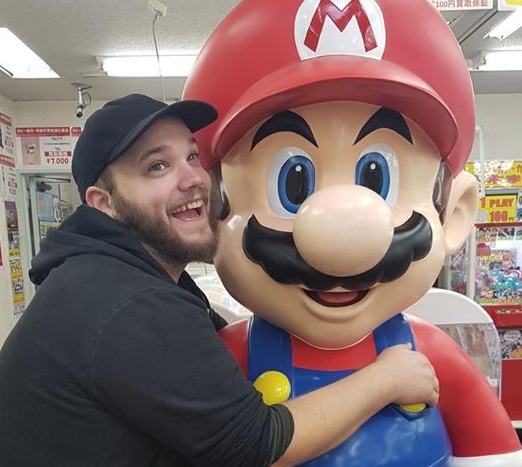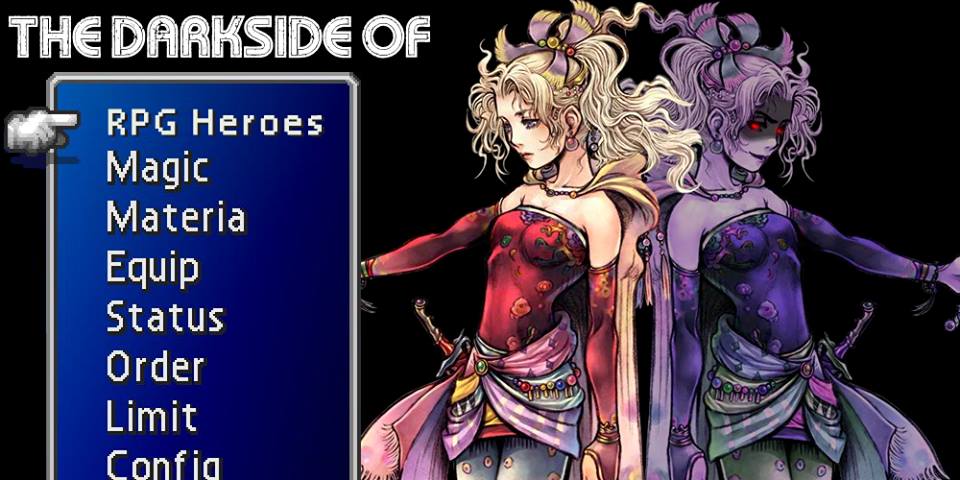
It’s been awhile since I’ve flexed my imagination, but I’m dusting off TDSO to break your collective childhood memories once again, dear readers. Being a child of the 90’s, RPG characters were something of a staple point in gaming for me and have stuck with me throughout my life. From the early SNES action-RPG’s like Secret of Mana and Illusion of Time to the turn-based, monotonous combat of FFVII, Diablo II, Fallout, Wasteland, so on and so forth. Taking the role of a grand character, sometimes getting to shape and mould that role to your own personal vision, is part of what has always appealed to me about these games. I mean, who doesn’t love going out for a romp around a fantasy wonderland as a raving sociopath?

IT WILL BE VERY, VERY FUN.
Hmmm? Oh, you didn’t know about this? It’s… I mean it’s happening right in front of you while you’re playing, I don’t know how you couldn’t have noticed. The biggest villains in these games are the ones who respond to your commands and it’s because of stuff like…
Let me paint a scenario for you: You’re playing an RPG and you’re in control of a team of four rag-tag adventurers, lead by a youth with a dark and painful past. You’ve just entered the throne room of the King that you’ve come to rescue, only to find that you’re just seconds late and he’s now in the clutches of a giant dragon. What do you do? If you said anything other than “Systematically murder the shit out of the dragon before literally dancing on its corpse,” then you haven’t played RPG’s before! The only way that dragon is getting out of there alive is so it can be killed later when it’s more story-appropriate. In the eyes of an RPG character, there is no other solution.
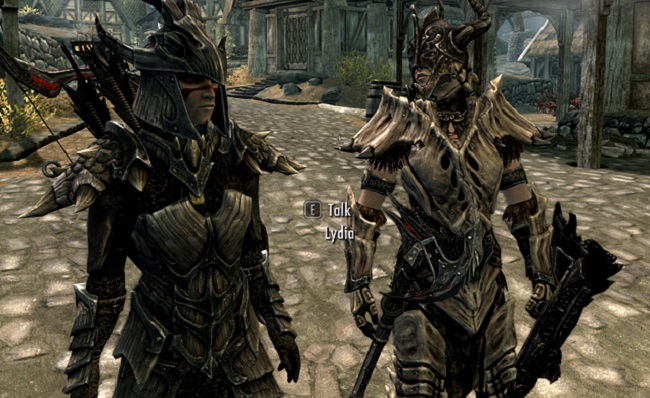
Unless it also involves turning the corpse into some fancy looking armor.
In order to understand this mindset, let’s think about how most RPG games start out: Hilariously terrible fights with incredibly weak enemies. These battles at the beginning, aside from artificially inflating the length of one’s game, are supposed to show the struggle of your character. They’re fairly weak themselves and have to fight their way to the top, to prove their strength and defeat their enemies! Except their enemies, more often than not, don’t really show up until a ways into the game, so what you’re actually fighting are just the weaker denizens of the area you inhabit. For most RPG’s, this means killing a whooooole lot of animals and the “self-defense” excuse is only going to protect you for so long.
Though before we move on to how they’re using these animals for experience grinding, quite literally working their way up to people, let’s look at what happens immediately post-fight. Dancing and celebration, which they’ll do at even the most inappropriate of times, but also looting. Looting the dead is pretty heinous in itself, but some RPG characters will even pick their kills apart for body parts and organs. Some of these things don’t even really serve a purpose and can be sold as vendor trash, as though “cute animal gizzards” are the trendy accessory of the times. Though as I said before, these so-called “heroes” are using easier kills as an education in violence and if you’re going to learn how to harvest organs then you need to start somewhere.
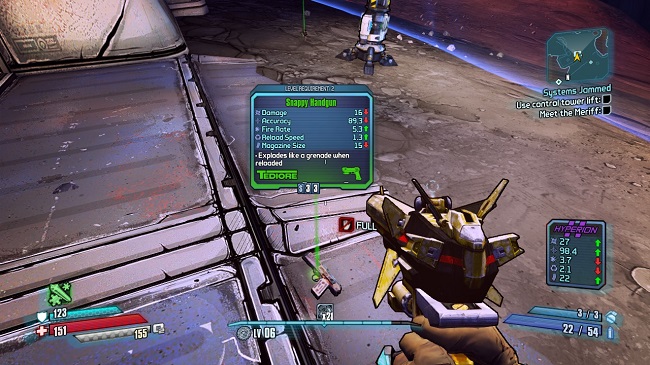
Sure, it might have fallen out of the stomach of something, but someone will still buy it.
It’s only natural that one’s abilities and talents will become more refined through practice; indeed, that is the case with most RPG heroes. I can only hope, however, that these people never run out of “bad guys” to slaughter because I can’t see much practical application for their skillset besides. So, even if Mister Dragon up there takes off with the King, soaring out of the castle and into the sky, these characters will give chase somehow. It’s in their cold-hearted, frightening nature and probably writhing their ability to do so. At least one of them should be able to fly at this point, or maybe they’ll have an airship – perhaps it too resembles a dragon. Whatever the means, they’ll find a way to catch up and, when they do, that Dragon is going to have a bad time. Jeez, if this is how they approach their enemies, I wonder how they treat their allies?
Poorly! RPG heroes are generally seen by the “good” locals as exactly that: Guardians, protectors, and keepers of the peace. This is also the image that the heroes themselves typically try to put forth by venturing out and vanquishing evil whenever it rears its ugly head. It’s kind of hard to see them as heroic, however, when they’re breaking every law of the land as they go about it. A locked door is about the only way to tell an RPG hero to sod off and that’s only assuming this is the kind of game where there’s no easy way around that. A stolen key, lock-picking, simply bashing down the door or waiting for an opportune moment to sneak in, these are all acceptable methods of entry to your average RPG hero.
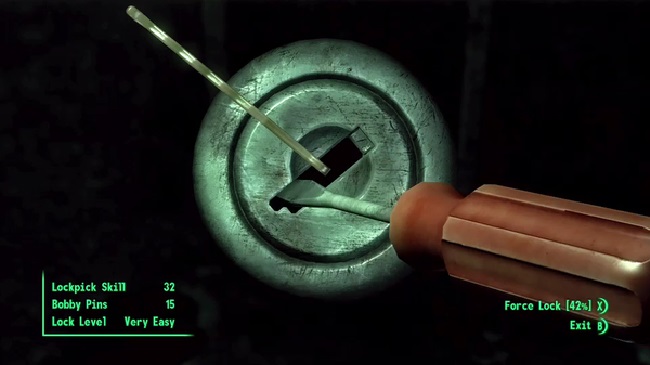
I mean… I didn’t see a sign that said not to break in, sooo…
I’m not even talking about the buildings and structures of the designated enemies, either, this is just so they can get into the homes and businesses of townspeople and city folk. That nasty old man won’t give up his family heirloom, the one he’s had in his family for generations, is the only link to a lost son and is sentimentally invaluable? No matter! Just lure him out with some half-baked distraction plan and have one of your crew steal it while his back is turned! It’s fine if he becomes emotionally crushed and mentally shattered, this is the fate of the whole world we’re talking about here. Probably. We’ll probably find a use for it. Gods help you if you don’t have the sense to lock your door either, because that’s practically putting a “free game” sign on your house to RPG heroes.
Think about the first thing you do when you arrive in a new city while playing an RPG. You’ll explore it, take the time to talk to its citizens and get a feel for the place. This, of course, means you’ll enter any room you can, harass whoever is inside and then get a “feel” for their possessions. Then your backpack will get a feel for them, too, as you walk out with anything that isn’t nailed down. You don’t converse with citizens, you interrogate them for information, with flavor text being quickly ignored in favor of stuff that will progress your mission. As far as RPG heroes are concerned, unless you have scripted dialogue or a stat list, you’re just a fancy looking item container that sometimes carries useful information.
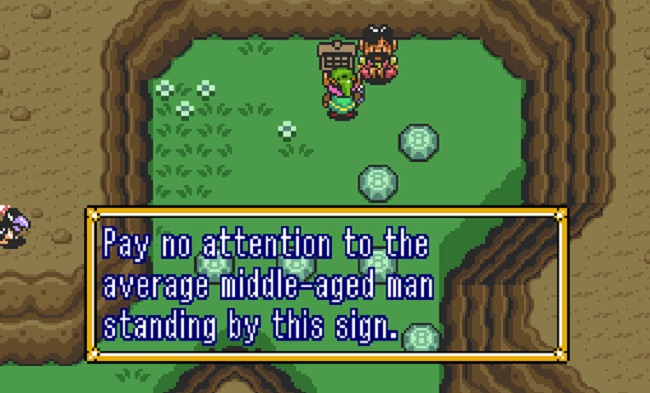
Just wait for the evil bird to kill him, then loot him afterwards.
It gets worse, as it always does in TDSO, when you consider that this is could all be happening while the town burns to cinders in the background. Sure, the hero might be racing through the blazing buildings in order to reach the Deus Ex Machina that will save them all, but she’s stopping for all the barrels and chests along the way. A town might be ridden with plague; with dozens dead and more becoming infected every day, its citizens could be desperate for every scrap of food and drop of water. Both will immediately become the property of the RPG hero when he walks into town, like his pocket has an item seeking vacuum attachment.
Despite all of this anti-heroism being performed in the name of “the greater good,” it’s not hard to see why everyone is just going along with it. I mean, you’d probably do whatever weapon wielding fanatics told you to, as well, when they’re standing right in front of you.
It’s funny how there’s always some kind of overwhelming and arbitrary influence which elevates the importance of the main characters above all else in RPG’s. They could be the chosen one(s), the charismatic leader(s) of a rebellion or the holder(s) of a terrible secret which must out. There’s always something which makes their cause the “right” cause, some element of their beliefs which, apparently, negates the possibility of anything else. Doesn’t that seem a little cultish? Especially when the general response towards anyone who doesn’t hold those same beliefs is to either shun them or attack them outright. What kind of benevolent hero punishes even the slightest dissent from their views with anger and violence?

“4. KNEEL BEFORE ME, PEASANT, OR I WILL END YOU.”
The kind that knows the universe falls into line with their own agenda, all the time, forever. Let’s use the classic trope of the final battle, for instance, and how it can’t happen until you enter the last room. The last Boss is in there, he’s gearing up his doomsday machine to fire, but there are no consequences to waiting indefinitely just outside the threshold. You can leave, go back to your starting village and complete all the side quests there before you’d have to go back. You could complete all the side quests everywhere, it doesn’t matter because the final Boss can’t do anything without your presence. This is thematic throughout the whole game, not just for the final Boss. This one character or group of characters, can decide everything from a town’s cosmetic appearance, to who lives and dies, to the fate of an entire planet.
You better believe that almost all of those decisions are based on those aforementioned beliefs that each character holds dear, meaning anyone else who doesn’t agree with them can go screw. You might think that this exclusively applies to the highlighted villains of those scenarios, but no world is so black and white in its geopolitical landscape. Grand, sweeping actions as a reaction to war, or aggressive action from a powerful enemy, will have consequences for everyone in the vicinity of whatever is going down. For every dramatic moment of an RPG hero declaring their intent to pursue their enemy, days of deliberation about the bystanders involved have been foregone.
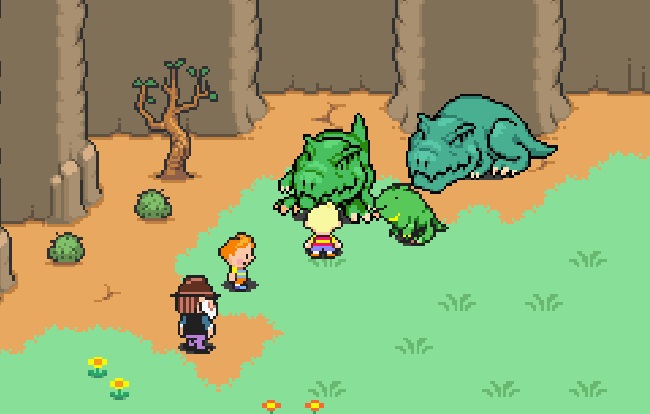
There’s no way that this adventure can end badly.
That’s assuming they do anything at all since they could be off on one of the previously mentioned side-quests. Maybe one to do with that Old Man’s trinket. They’re probably out collecting bird’s feathers or something equally as asinine, either in willful ignorance or callous disregard for the suffering of those around them. Who cares if the people of Kakoriko village live under the oppressive and frightening regime of Ganondorf? There’re chickens to chase, bottles to find and medieval arcade games to play! Sure, the existence of those who have to wait while you do all of this is one of unending agony, that’s terrible and everything. But if they don’t agree that it’s for the greater good, then maybe they’re actually evil and it’s better that they stay that way.
Some might argue that this is taking the actions of many characters out of context and that a lot of this might not apply to their favorite series because of “x” reasons. I’m sure apologists of narcissistic, thieving mass-murderers always feel so confident of such claims. But just remember, dear readers, that when you take up the mantle of RPG hero, you’re also likely swinging the sword of bloody oppression. Fun!

